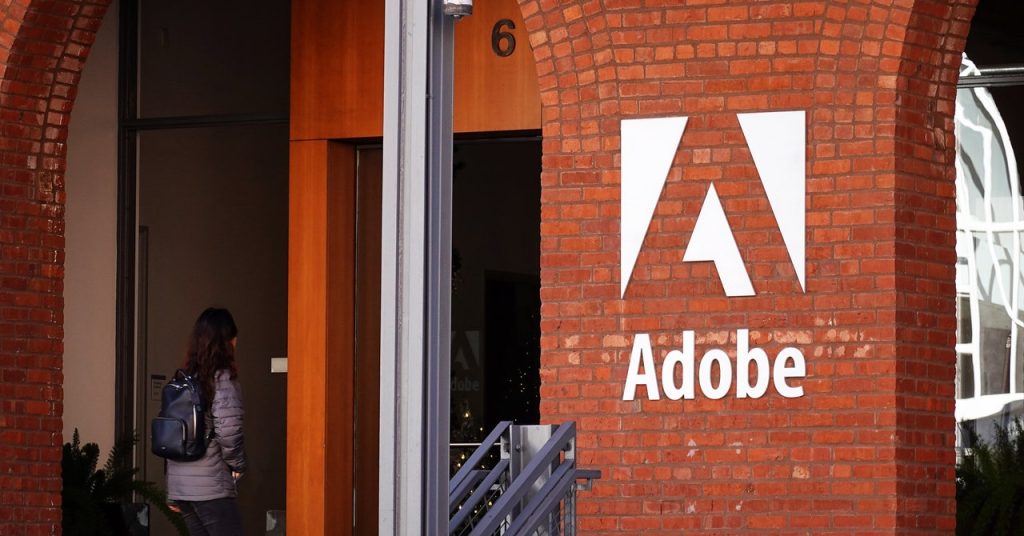Adobe’s Controversial Terms of Service Update
Initial User Reactions
When Adobe quietly updated its terms of service in February, users were alarmed. The new terms suggested Adobe could access their content using both automated and manual methods, including machine learning, to improve its services and software. Many interpreted this as Adobe forcing users to allow their work to be used for training its generative AI, Firefly.
Adobe’s Clarification
Late on Tuesday, Adobe clarified its stance. In an updated version of its terms of service agreement, the company promised not to train AI on users’ locally stored or cloud content and provided an option to opt out of content analytics.
Intellectual Property Concerns
Artist Backlash
The ambiguous language in Adobe’s terms fueled skepticism among artists, many of whom rely heavily on Adobe for their work. Jon Lam, a senior storyboard artist at Riot Games, expressed distrust, citing how award-winning artist Brian Kesinger discovered AI-generated images in his style being sold under his name on Adobe’s stock image site without his consent. Similarly, the estate of late photographer Ansel Adams criticized Adobe for allegedly selling AI imitations of his work.
“They already broke our trust,” says Jon Lam.
Adobe’s Response
Scott Belsky, Adobe’s chief strategy officer, attempted to calm concerns by clarifying that machine learning referred to non-generative AI tools like Photoshop’s “Content Aware Fill.” Despite Adobe’s assurances that it would not use user content to train Firefly, the misunderstanding sparked a broader discussion about Adobe’s market dominance and potential threats to artists’ livelihoods.
Legal and Ethical Issues
Previous Lawsuits
The anxiety over nonconsensual use of copyrighted work by generative AI is not new. Early last year, artist Karla Ortiz found her work being used without permission by various AI models, leading to a class action lawsuit against Midjourney, DeviantArt, and Stability AI. Polish fantasy artist Greg Rutkowski also discovered that his name was a common prompt in Stable Diffusion.
Adobe’s Market Influence
Adobe has been a dominant force in the creative industry for over 30 years. Its attempt to acquire product design company Figma was blocked in 2023 due to antitrust concerns.
Ethical Training and User Consent
Firefly’s Training Data
Adobe claims that Firefly is “ethically trained” on Adobe Stock. However, longtime stock image contributor Eric Urquhart argues that Adobe does not own the rights to images from individual contributors. Urquhart’s images, originally uploaded to Fotolia (acquired by Adobe in 2015), were used to train Firefly without his explicit consent, as detailed in VentureBeat.
“There was nothing ethical about how Adobe trained the AI for Firefly,” says Eric Urquhart.
Artists’ Responses and Alternatives
Switching Tools
Since the introduction of Firefly, some artists have switched to alternatives like Affinity and Clip Studio, though others feel compelled to stick with Adobe. “Professionally, I can’t quit Adobe,” says Urquhart.
Legislative and Technological Solutions
FAIR Act
In September 2023, Adobe announced the Federal Anti-Impersonation Right (FAIR) act, aiming to protect artists from misappropriations of their work. However, the act only addresses intentional impersonations for commercial purposes, raising questions about its efficacy.
External Tools and Advocacy
Outside Adobe, researchers at the University of Chicago developed Nightshade, a tool that “poisons” training data, and Glaze, which helps artists mask their styles from AI. The Concept Art Association also advocates for artists’ rights through crowd-funded lobbying efforts.

6 Comments
Oddly enough, not everyone is convinced that Adobe will stay true to their word!
Why does nobody trust Adobe on this?
InkSkeptic: So, we’re just supposed to believe Adobe out of the blue now?
Isn’t it amusing how skeptics always find a reason to doubt?
HereFusion: Isn’t it weird that some creatives are still skeptical despite Adobe’s assurances?
Given Adobe’s track record, who can blame creatives for being skeptical!